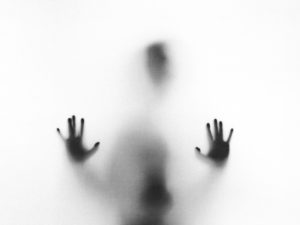by Jenny Rose | Jan 26, 2017 | Connection & Community, Emotional Intelligence
I sit down this week with a tangle of feelings around what I want to say. It’s hard to know how to begin.
Sometimes I think with longing of the days I lived alone. There were things about being alone that were destroying me, which is why I left that life, but I did have the ability to control my audiovisual environment, and that’s not possible when living under a roof with someone else.

Photo by Frank Okay on Unsplash
I seem to be always wincing away from things lately. I avoid the living room because I don’t want to catch a headline on the muted CNN news channel out of the corner of my eye. If the sound is up, I don’t want to be anywhere where I can hear what’s being said. I’ve taken to singing a song to myself, or reciting a piece of poetry or a Celtic prayer to provide audible distraction when the TV is on, the adult equivalent of sticking my fingers in my ears and saying “la la la” when my brother is teasing me.
It’s nearly impossible to be online without seeing headlines and commentary, both during leisure and at work as I research for my medical transcription job.
The worst thing, though, is how I flinch away from other people, especially my partner, whom I love. He’s on Facebook, of course. I’m not. He’s gregarious, outgoing, outspoken, intelligent and has hundreds of “friends.” He’s also a news junkie and a voracious fact checker and science reader. He has, you might say, strong views. He thrives on controversy. I don’t.
Sharing the things that occupy our attention, questions, observations and what we learn is the most vital part of our connection and normally I treasure it, but not in these times. Right now I don’t want to talk about what’s occupying our attention, and I’m miserable about that.
The current political and social landscape feels like a black hole to me. It’s exhausting and horrifyingly futile. Half of the “news” is about what might happen. What is happening is so disturbing on so many levels I don’t even want to deal with that half of it. All of it together is like drowning in sewage.

Photo by roya ann miller on Unsplash
At this point Americans can’t even agree on what the “real news” is. It all depends on which alternative facts we choose to believe.
I don’t want to talk about it, hear about it or think about it. I want to play music, watch the light come through the windows, fill the bird feeders and watch the birds, take a walk and listen to the trees sleep, feel the grit and crunch of ice under my feet. I want to talk about the simple pleasures of the day, like clearing ice dams off the roof, running into town for groceries, something we’d like to learn or do together, a book we’d like to read. I’d like to put up a couple of new shelves for our spilling-over DVD collection, clean a year’s worth of cat hair and dust from the old shelves, wipe down the DVD cases and reorder them.
What I don’t want to do is get sucked into an endless individual, community, national and even worldwide debate about who’s right. That’s what so much of the “news” seems to be these days — a contest. Each side has a stockpile of memes, quotes, leaders, “news” sources, labels, ideologies, statistics, videos, pictures, threads and articles as ammunition. Oh, and don’t forget the tweets! People on each side are cutting, contemptuous, scornful, threatening and just plain mean.

Photo by Quino Al on Unsplash
Everyone, it seems, wants to win and be right. Everyone hopes passionately for the chance to say “I told you so,” to the other side. We seem to believe that agreement and validation from others makes us even more right than we were in the first place, and the righter we are, the wronger all those other knuckleheads are.
I was never a big competitor. I can’t see victory in being right. Sure, it’s always pleasurable to find out one was right all along, but being right automatically presumes someone else is wrong, and I’ve spent so much of my life feeling wrong that I can’t glory in watching anyone else go through it.
I’m not suggesting it’s wrong to have opinions and beliefs, and I’m not suggesting it’s useless to take action in support of our beliefs. What I am saying is that I question the usefulness of expending our energy on arguing over the size of a crowd, for example. It doesn’t matter. It doesn’t change anything. The only possible constructive thing that comes out of an argument like that is the satisfaction of being right, but we aren’t satisfied unless the wrong ones agree with our rightness. A Trump ally is never in a million years going to convince a Trump enemy about crowd statistics, or vice versa. It’s not going to happen. Every word and moment we put into that argument is wasted energy and effort and further divides the two camps. It doesn’t create change, understanding and agreement. It cements and further polarizes our differences.
If our agenda is in fact to create a bloody, bitter divide, then pardon me. I didn’t get the memo. In that case, we’re doing a great job and I’m wasting my time here.
I myself was hoping for change and understanding.
Pretend, for just a moment, that everything you believe is absolutely right. Everything. Your religious belief; your belief about how to eat appropriately; your political beliefs; your stance on abortion, sexuality and marriage; your beliefs about climate change and the environment. Luxuriate in it. YOU ARE RIGHT! Everyone who believes differently or contradicts you or refuses to listen to the facts is both stupid and wrong. Well done.
Now what? Or maybe I should ask, so what? Do you have more power? Will your life work better? Will the people who disagree with you behave themselves now — straighten up and fly right? Will your health and relationships be better? Will you make more money? Be less stressed?
Right or wrong, we all still wake up in the morning and think about money, food, families, friends, work, play, health, weather, time, the future, the past, hopes and fears. We all live on a planet called Earth. Right or wrong, the same face is going to look back at us from the mirror. However right or wrong we are, everyone else is going to go right on being wrong. Or right, as the case may be.
So, you win. You’re right and I’m wrong. Congratulations.
Now that that’s out of the way, may I give you a hug? Would you like to take a walk? Would you like to come swim with me, or dance? Shall we make a lunch date? The kitchen’s a mess — will you come do dishes with me? What kind of music are you listening to these days? What are you reading?
Could you, by any chance, put up a couple of shelves for me?

Photo by Jenelle Ball on Unsplash
All content on this site ©2017
Jennifer Rose
except where otherwise noted
by Jenny Rose | Dec 29, 2016 | Connection & Community, Emotional Intelligence, Shadows
Glamour: Enchantment, magic (archaic)
Gaslighting is the manipulation or twisting of information. To be a victim of gaslighting is to be an audience at a magic show where the magician carefully and skillfully distracts and controls our attention and perception. Gaslighting seduces us into believing in a particular reality.

Photo by Jonathan Crews on Unsplash
It’s all fun and games until the glamour doesn’t match our experience and we try to hold two realities. Trying to hold two realities is like being torn in half. In a very short time we feel forced to choose. If we’re in a primary relationship with a gaslighter, we might choose their reality over ours, because we love them. We trust them. We have a history with them, a commitment. We’re loyal to them. We need them. They have power in our lives.
Gaslighting is abuse.
Let that sink in for a minute. To be with a gaslighter is to be with an abuser.
Gaslighting can and does kill people.
Some of us are sitting ducks for gaslighters, because we’ve already been trained to doubt our feelings, thoughts, perceptions and memories. We’ve already been shamed for expressing our experience. We’ve already been silenced. We know we’re damaged, broken, ugly and wrong.
It’s a match made in heaven for a gaslighter.
I use the word glamour because being in the power of a gaslighter is like a magic spell. It’s like a mind-numbing drug. It’s an emotional cancer that gradually saps your strength, your ability to think, your joy and your power. The more you struggle, the more exhausted you become. The harder you try to understand what’s happening, the more confused you are. You fall into a dark pit of madness.

Photo by Travis Bozeman on Unsplash
Think I’m exaggerating? Think I’m dramatic?
Well, lucky you. You’ve never been with a gaslighter, then.
Fortunately, there is a cure. There’s a way to take back our power and our lives from a gaslighter.
We have to turn on the lights. We have to twitch aside the curtains, look behind the props, get close enough to see the greasepaint, the wires, the hidden tools and tricks. We have to go through denial, humiliation, pain and loss. We have to consent to see what’s been happening, and then, just like that, it all dissolves and we realize…
It was all just an illusion, a glamour.
We’re not crazy, after all.
It wasn’t love we were getting (no wonder it didn’t feel like love!). It was gaslighting.

Photo by Nick Karvounis on Unsplash
Here’s an example of gaslighting:
Two single people, Mary and Bob, age somewhere around 45, embark on a committed, monogamous relationship that will endure for eight (long) years.
Both parties have jobs, families and friends, histories and their own homes and activities. Both are financially independent.
Mary’s all about relationship. She thinks of Bob as her primary priority in terms of time and energy and looks forward to spending time with him. She assumes, without really thinking about it, he feels the same way. In order to achieve maximum time together, she tweaks her schedule so she has as much time off as possible when Bob does and refrains from making plans during any time they might have together.
Time goes by and Mary and Bob see movies together, go out for modest meals, take walks and drives, go to art shows and concerts and generally enjoy one another’s company, including the occasional overnight.
Bob works long hours at a stressful job, so Mary is understanding of his needs for time alone on the weekends, and she gladly takes responsibility for planning some dates and time together, including sharing costs.
Very gradually, without really noticing, Mary finds she’s the one doing all the work of planning time together, and she notices what feels like resistance. Bob is late. He’s tired. He has to work on days off. He brings work home. He can’t spend a night together because he’ll be late at work. Or he’ll be going in early for work. Sometimes he doesn’t want to go through with weekend plans at all.
This is hurtful and frightening. Mary is deeply invested in the relationship. She doesn’t want to feel the hurt and disappointment that occurs when Bob breaks a date that she’s looked forward to all week. She becomes less interested in making dates, but, ever hopeful, keeps all her free time open in case Bob should suddenly decide he wants to get together.
One day Bob expresses hurt and disappointment about not getting enough attention from Mary.
Mary is devastated. She loves him, but realizes she hasn’t conveyed it properly. She’s mortified and apologetic, and tells Bob (truthfully) he’s her priority and she’d love to spend more time together. She realizes he’s very sensitive and does everything she can to express love and appreciation for him. She resolves to do better.
Strangely, in spite of what Bob says, he seems less and less available. Mary, knowing how he feels now, tries harder and harder to get it right.
A movie comes out that Mary wants to see. She knows it’s shameful and disloyal, but the idea of taking herself to a movie, sitting where she wants, being in time for the previews and just relaxing is attractive. She doesn’t think Bob would be much interested in the movie anyway, and he hasn’t said a thing about weekend plans. In fact, he hasn’t called her or been in touch all week.
Mary takes herself to the movies and has a great time.
Later, Bob says, “I didn’t say I wasn’t planning on seeing you! Why are you putting words in my mouth?” He’s deeply injured.
Mary’s ashamed. No, he hadn’t said that. She just assumed, since he hadn’t been in touch… Now she can see how hurtful and unfair it was to have assumed. Now she’s wasted an evening she could have spent with Bob. She doesn’t deserve such a good man.
Bob’s heard about that movie and he does want to see it. He insists Mary go with him, and she does, conciliatory.
It’s the least she can do.
Mary, determined to do no more assuming, now begins to ask from time to time, “Are you planning on seeing me this weekend?” She’s already learned that trying to make a date doesn’t work, and she knows if she says she wants to see him he’ll feel pressured.
For some reason, this question, like so many others, causes problems. Mary assures Bob she understands if he wants a weekend to himself, that she’s not trying to pressure him, put him on the spot, or make him responsible for the relationship. She just wants to know so she can make plans if he’ll be doing other things.
Grudgingly, Bob answers, “I’m not planning on not seeing you!”
Mary has a panicked moment of feeling crazy the first time she hears this, and every time thereafter. What does Bob mean? She can’t get it to make sense.
So it goes. Fast forward to the inevitable last day Mary sees Bob.
Mary, with the feeling of stepping off a cliff, looks Bob in the eye and says, “Will I see you sometime?”
He shrugs, grimacing.
Mary gets ready to turn on the lights.
“You’re not planning on seeing me again, and you’re not planning on not seeing me again.” She’s word perfect.
Shrug. Grimace.
“Well,” she says quietly, “I’ll make some good plans for myself, then.”
The lights go up. The curtain comes down. The dazed audience gropes for coats, purses and other belongings. The eight-year-long show is over.

Photo by Peter Lewicki on Unsplash
Mary walks out, feeling permanently maimed but free at last, and spends the next three and a half years putting herself back together. It’s the most painful breakup she’s ever had, far worse than her experience of divorce.
The glamour is broken.
All content on this site ©2016
Jennifer Rose
except where otherwise noted
by Jenny Rose | Dec 15, 2016 | Connection & Community, Emotional Intelligence
Last week, my partner and I went to the movies and saw Arrival. Without giving any spoilers, I found it a stunning story about communication, among other things. It was the communication piece that really grabbed my attention, though.

Photo by Jason Rosewell on Unsplash
Ever since then, I’ve been thinking in a newly focused and intentional way about communication — what it means, how it looks, where it breaks down and how to do it well.
The truth is, I don’t want to know how to do it well. I want to know how to do it perfectly.
Another truth is I’m always thinking about communication, because I’m always working on my book, on this blog or on relationships, and they all involve communication. My partner says there is no relationship without communication, and I think he’s right.
As regular readers know I am wont to do, I pulled out my Random House Collegiate Dictionary to give myself a starting place. Anyone who’s used a dictionary knows there are often multiple meanings for any given word, so I made a list of the definitions I liked, cut and pasted a little, and came up with this (emphasis is mine):
Communication:
- To give or interchange information to/with one another.
- To express one’s true thoughts, feelings and moods easily.
- To have or form a connecting passage.
Although I’m intellectually satisfied with this definition, it feels incomplete and inadequate. In fact, it makes me mad. If only effective communication was this easy and simple! Instead, it seems to be one of the most desperately difficult things we do, and we must communicate if we are to manage life in today’s world.

Photo by Bewakoof.com Official on Unsplash
How many ways does communication break down for us in a day? Are we even aware of all the ways it breaks down? How often are we communicating something completely unintentional?
At the same time, have we ever, in the history of humankind, had so many devices and forms of communication at our disposal? Have we ever had access to so much information and so many other people?
So why aren’t we happier, more authentic, more secure and sure of our worth? Why are so many of us starving for healthy, fulfilling connection? What’s missing?
If I knew, I would fix it in my relationships, but therein lies one of the problems.
This is the part that always sneaks up and bites me in the ass.

Photo by Toa Heftiba on Unsplash
Not everyone wants the level and quality of communication I do. Generally, I don’t take this cold little fact personally, but among my nearest and dearest it does feel personal, absolutely. I feel utterly and completely rejected and shut out, in fact.
Another problem is that not everyone is capable of the level and quality of communication I am. Many people carry terrible damage or experience disability that prevents them from being able to participate in touch, in sex, in eye contact and nonverbal cues, even in conversation. I can tell you from personal experience it can be very, very difficult to sort out those who want to and are unable to from those who simply don’t want to. In the end, it doesn’t matter, it all comes to the same thing. When communication is limited, relationship is limited.
Limitation frustrates me, whether it’s my own or imposed by others. I can do more. I want to do more.
A third issue is that communication is two-edged. It’s an enormously powerful skill and ability, both constructively and destructively. We all know people who use communication as a weapon, not a tool. Sometimes, a simple, ominous clearing of the throat can be far more terrifying and damaging than a blow. Both actions are communication. Even worse are people who deploy words saying one thing and demonstrate action that says another, like the abuser who says he loves you while he hits you. This is called gaslighting, and I’ll write about it in the future. It needs a post all its own.
A fourth point is we don’t have enough silence in the world. Silence is the cup that holds communication. It takes time to write, to create, to speak, to hug, to make love, to nurse an infant. It takes time to nurture a friendship, a lover, a child. Sitting with the ill or dying takes time and quiet. Listening takes time and presence. Our slavery to technology and stimulation has all but eliminated uninterrupted time for our relationships with ourselves, let alone with others.
And that brings up a fifth aspect. If we don’t, won’t or can’t communicate effectively and honestly about who we are, what we need and want and the truth of our thoughts and feelings, we can’t form a connecting passage, to quote the above definition. We’re not even connected to ourselves.
As though all those things didn’t make communication a big enough hairball, we have to remember who we are. We’re human, which is to say each one of us carries stories, beliefs, expectations, memories, scars and bleeding wounds that get in our way every time we communicate, even with (especially with) those we care deeply about. We all have painful triggers. We all get hijacked. We make assumptions. We misunderstand, deny, obfuscate, conceal. We filter through our particular history and experience. Few of us have any training in effective communication. We can tweet or text a sentence or two, but ask us to do more and we’re at a loss. For one thing, we don’t have time to deal with it.
We also have rules about communication, individual rules, tribal rules, cultural rules. We have rules about acceptable language, rules about keeping secrets, rules about being indirect, rules about protecting others, rules about loyalty and duty, rules about privacy, rules about what we’re willing to reveal to whom, rules about who we trust and don’t.
Even the words we choose can make or break communication. Here’s an example out of my own life I’m feeling particularly resentful about at the moment.
I’m a woman, a partner, a sister, a daughter and a mother. I love wholeheartedly and I’m very clear about how important healthy relationship is to me. I know the people I love well, and I try hard to accommodate their personalities, preferences and idiosyncrasies. I’m not Miss Fixit. I’ve no investment in protecting people, and the four men in the world who I love most are unbelievably capable and intelligent adults.
When I say, “What can I do to help? “Is there anything I can do to help?” or “Is there anything I can do for you today?” I’m not implying they can’t manage their lives, dammit! I’m giving a message of love. I’m saying, “I’m here. You matter to me. I’m glad to lend you support. I’d love to collaborate/cooperate/work with you.” I’m making a connection. I’m giving what I most want. Catch me being insulted if someone asks if they can help me figure out how to run the errands, take care of work and cook a meal!
My male partner says, with great patience, that I should use the word “assist” instead of help.
Seriously???? These four idiot men, who know me better than anyone else, need me to tippy-toe with my language in order to hear a message of love and support?
Never mind. I’m over it. Figure out your own damn life, and I’ll figure out mine.
Furthermore, catch me allowing any of them to help me, even though I know that’s connecting for them. They don’t need anything from me, I don’t need anything from them.
See how that breaks down?
And half of that is about me. I’ve been taught to be indirect in my language, I’m giving others what I want myself (this never works well, because the recipient rarely understands that’s what I’m doing), I’m coming across as relentlessly mumsy-wumsy and overprotective, and I’m assuming these four men are like me and won’t ask for help if they need it, but I’m the one who can’t ask for help, and now I’ve fastened myself more firmly in that position because they won’t cooperate with me and allow me to love them, so I’m not going to give them the satisfaction of…
And so on.
My conclusion about all this is that communication among human beings is a clusterfuck. It’s confusing. It’s messy. Most of us don’t know what the hell we’re doing and many of us are not that well intentioned in the first place. We have wildly varying degrees of ability with wildly varying aspects of communication. We try to hide, we misunderstand, we make mistakes, we don’t remember accurately and we’re often terrible at listening. We want to be right, we want to be validated and agreed with, and we want others to meet our needs quickly and perfectly so life feels simple and uncluttered, emotionally, at least.
I’m never going to do it perfectly, and neither is anyone else.
But hey, let me know if I can help you in any way!

Photo by Quino Al on Unsplash
All content on this site ©2016
Jennifer Rose
except where otherwise noted
by Jenny Rose | Dec 1, 2016 | Connection & Community, Emotional Intelligence, Shadows
Tribal shaming is one of the most powerful ideas I’ve been introduced to in the last years. A friend sent me a Facebook post by the author Elizabeth Gilbert (author of Eat, Pray, Love). Here’s a link to that post. You don’t need to be on Facebook to read it, just press “Not Now” when it asks you to sign in.
It’s a long post, but it’s also life changing. Get ready for insight and clarity you’ve never had before about your tribe on every level, from family to country.
In (very) short, the concept comes from Dr. Mario Martinez, who wrote a book called The Mind-Body Code. Gilbert provides a link to a podcast by Dr. Martinez in her post. Gilbert was so stunned by Dr. Martinez’s work that she posted about it, and now her post is all over the net. Clearly, others find it as significant as I do. As the political situation unfolds day by day here in America and all kinds of people react in all kinds of ways, I keep thinking about the power of tribal shaming.
In this context, the word “tribe” means any group with which we identify. Tribe is family, church, community, culture, nationality, team, workplace, etc. Tribal shaming examines the power of the tribe. It’s not a new idea, of course. We’ve studied cults, gangs, religious sects — all kinds of groups — in order to understand the choices we make and how they’re influenced by those around us. What I hadn’t thought about before was the invisible destructive power our tribe(s) have over our ability to live well.

Photo by Liane Metzler on Unsplash
One of the greatest motivators for us as humans is the desire for connection to others. Our earliest experience of connection takes place in our family of origin, or in the context of whoever raised us, even if just people in an institution. From infancy on, we’re each surrounded by tribal cultures and norms, tribal rules, and the differentiation of our tribe from others. This shows up in an overwhelming number of ways: Economically, geographically, religiously, educationally, etc.
Tribes provide us with connection, identity, meaning, and, hopefully, security and safety. They help us define ourselves and shelter us from an unkind world. Connection is a deep need for human beings, and without it we don’t survive. We know there are all kinds of consequences for people who have no early sense of tribe, from attachment disorder to failure to thrive to severe mental illness — and those only if the child survives in the first place.
Tribal connection works very well for people who feel they belong in the tribe(s) in which they find themselves.
But what happens when we don’t fit into our tribe? What happens when we ask questions and break rules? What happens when we don’t accept the tribe’s authority? What happens when the tribe abuses us?
Tribal shaming, that’s what.

Photo by Stefano Pollio on Unsplash
Now, you might say, so what? So you break away from your family, group, church, whatever. Big deal. People do it all the time. It doesn’t matter.
That’s true. It’s also true that at a casual glance we’re all just fine. We move, we change jobs, our beliefs and views change, we get divorced, people come and go out of our lives. We spend time on social media, catch a movie, watch TV, have a drink, take a pill, buy a pint of ice cream, light up another cigarette. Maybe those closest to us see a shadow of addiction, workaholism, people pleasing, depression, insomnia and anxiety, but that’s nothing, right?
I don’t believe that for a single second.

Photo by Joshua Earle on Unsplash
It does matter. Tribal estrangement is a deep wound that never stops bleeding, and it doesn’t much matter why the estrangement exists. If we feel cast out from our tribe, it hurts. We may grieve, we may rage, we may become ill, but there will be consequences for this kind of amputation. One hundred friends on Facebook can’t make up for it.
It hurts so much, in fact, that many of us self-sabotage so we can go back, because the thing about tribe is they’ll always take you back if you fail. Now think about this for a minute. You can always go back if you fail.
The power of tribal shaming touches us all. I’ve seen it play out very powerfully in my family, and I bet you have, too. Right now, huge populations of people are on the move in the world, compelled by war, politics and the basic necessities of food and water. Millions more will be displaced by climate change. Social, geographic and economic boundaries are threatened. Our sense of self and tribe is undergoing intense pressure as we fight for space and resource.
Through this blog, I’ve made a friend in Nigeria. Her experience as a woman in a large city in a foreign (to me) country is eye opening. It’s easy to forget how life is for many other people in many other places. Today we might be able to eat, have a job, or have a roof over our head. Today we might have a tribe, no matter how small, or maybe several tribes give us a sense of belonging and comfort, but tomorrow is another day, and much of the world is closer than we are to the precipice of famine and chaos.
The concept of tribe, like the concept of resource, is fluid. We define it ourselves. Right now in America, we’ve made money the most important resource. What will happen when a cup of clean water or a mouthful of food becomes the only resource that counts? What will happen if tribal shaming becomes tribal sharing and we decide to create a tribe of all life on earth, including the planet itself?
In the meantime, though, we clearly feel it’s effective to create small, rigidly defended tribes with small, rigidly defended rule sets and spend time making bombs of all kinds to throw over our palisades. Whatever happens, we must not allow the threats of education, science, literacy, critical thinking, equality or any kind of difference to exist. People must toe the line or get out — one way or the other.
Us against them and the outcasts in between. It works so well, doesn’t it?
All content on this site ©2016
Jennifer Rose
except where otherwise noted
by Jenny Rose | Nov 17, 2016 | Connection & Community, Emotional Intelligence
I haven’t enjoyed this week much. It reminds me of the week after 09/11, when I thought I would drown in the hate and despair around me.

Photo by Quino Al on Unsplash
I’m not on Facebook, but my partner is and I hear more than I want to about what’s going on there. I’m developing a pathological hatred of the news in any form, even as I obsessively read the Internet. I think about friends, family, acquaintances and a world full of frightening strangers with the power, strength and willingness to hurt others, including me.
I work at home as a medical transcriptionist, a fact I don’t talk about much because I respect the privacy laws in this country around medical information. My book of business is presently in Illinois, but I’ve also worked extensively in New York, Ohio and Alabama. I spend twenty-four hours a week typing dictated stories about strangers, a significant number of them experiencing physical and emotional pain and suffering from the current situation.
Here in central rural Maine, Native Americans in our community are victims of increasing hate crimes. Their people have been in this place for thousands of years.

Photo by Sue Tucker on Unsplash
It seems to me in the last week we’ve put on the table an infinite number of ways in which to divide ourselves from one another; an infinite number of ways to express hate, intolerance and blame; an infinite number of labels to weigh ourselves and others down with. None of it feels useful
I want to find ways to support what I believe in and reach out to other people. I want to do something, no matter how small, to make a difference in this, but I’m noticing something interesting about that. As soon as I communicate about some kind of action I’ve taken, someone cuts me down. I’ve been told wearing a safety pin is patronizing and indicates privilege; I’m not welcome in America; I’m going to burn in hell; and I’ve joined a hate organization (that would be MoveOn.org).
Maybe no one out there needs support, or wants to make a contribution to unity and respect, but I don’t really believe that. At any rate, I need support and I do want to make a contribution, so here are some thoughts about what would help me.
Here’s a graphic to contemplate as we go on:
Enough with the labels. We have to stop this. One thousand labels can’t define the complex creature a human being is. I maintain that what’s happening now is NOT about race, gender, religion, politics, immigration or socioeconomics. What’s happening now is about power — how we define it and understand it, how we use it and what we’ll do to gain it or overthrow it. I think the most important question to ask ourselves is if we support power-over others or power-with others. That’s really the bottom line. It’s at the heart of all the disagreements. The rest is just inflammatory and dangerous distraction.
Enough with the apocalyptic stories and predictions. The fact is nobody knows what’s going to happen now. We’re in uncharted territory politically, economically, socially and environmentally. Many people think that’s a good thing. Sure, it’s scary. The unknown always is. On the other hand, politics as usual wasn’t working very well for most of us in this country and change is an inevitable part of life. Blessing or disaster, the point is none of us know the future and we’ll all have to deal with whatever happens as best we can. Terrifying ourselves and one another with dire predictions, threats and stories won’t help anyone. Fear is terribly contagious and terribly ineffective in decision making, but it’s a useful tool for manipulation.
The best defense against fear and misinformation is to do our own research. All the people in the headlines right now are real people. They have lives, histories, Wiki pages, on-line organizations, quotes and podcasts. We can read about them. We can look at quality news organizations in other countries and what they’re reporting for a contrast to domestic news. Discerning between fact and opinion is important. We need to take responsibility for our opinions and beliefs.
It’s time to stop worrying about everyone else and clean up our own acts. Are our words and actions congruent? What do we believe, and why? What are our priorities? What kind of outcomes do we want for ourselves and our communities, however we define community?
We can’t change other people; attempts at doing so merely divide us more deeply. We must accept that not everyone agrees with us and stop wasting time in destructive argument. We don’t have to shoot one another in the head and throw scorn at those who disagree with us. We can use our energy to work for what we believe in and allow others to do the same.

Photo by tom coe on Unsplash
We don’t have to accept an invitation to fight. We can find communities in which respectful conversation and debate take place if we want to discuss an issue. Many of us don’t feel safe verbalizing, revealing or defending our views, but everyone can vote with their presence. If we’re uncomfortable or scared in a conversation, we can leave it. We can’t stop hatred, but we don’t have to be a part of it.
We can learn to express our thoughts, feelings and opinions in a way that allows others respect and dignity. We can learn to listen. We may disagree with people, but that doesn’t mean they have nothing important to say.
We need to root out sweeping generalizations. All white people are not living a life of economic privilege! All patriots are not Christians! All Muslims are not terrorists! All blacks are not criminals! All Latinos are not undocumented immigrants! All men are not rapists! All gay people are not child molesters! All Christians are not militants! First graders think in these black and white ways, not adults. We shackle each other with these assumptions.
There’s a lot of talk about privilege right now. It’s a slippery term, and I think the perception of privilege is really in the eye of the beholder. Here’s a very interesting self-test you can take. Some of the questions will help you appreciate the difficulties many people face. In case any one wonders, my score was a 44 — NOT privileged, according to this tool. Certainly very privileged in comparison to some people.
Going on from here. My daily crime.
All content on this site ©2016
Jennifer Rose
except where otherwise noted
by Jenny Rose | Nov 10, 2016 | Connection & Community, Emotional Intelligence, Shadows

Photo by David Beale on Unsplash
My partner sent me this quote this morning, and inspired this week’s post.
“Being able to feel safe with other people is probably the single most important aspect of mental health; safe connections are fundamental to meaningful and satisfying lives. Social support is not the same as merely being in the presence of others. The critical issue is reciprocity: being truly heard and seen by the people around us, feeling that we are held in someone else’s mind and heart. For our physiology to calm down, heal, and grow we need a visceral feeling of safety.”
— from p. 79 in The Body Keeps the Score by Bessel van der Kolk
As I draft this, it’s Election Day. It’s a work day for me, but I have a long break between a morning and evening shift, so I voted, ate lunch and worked on a big clean-up project my partner and I are undertaking in an outbuilding on our place. The clean-up involves dust, dirt, trash, food debris, rodent and bat droppings, broken glass, sticky empty bottles and cans and cigarette butts. It’s filthy work, but this afternoon, forty-five minutes before I go back to my pay-the-bills job, I feel happier and more peaceful than I have all summer.
I feel safe.
My earliest memories are of feeling unsafe. The people around me were unhappy and unwell. The air was heavy with tension and unexpressed feelings. I was afraid all the time, and I knew that was bad, because it irritated the adults, so I tried to hide it. The world was unpredictable, inconsistent and baffling. Ever since those days I’ve comforted myself in times of stress and fear with a fantasy of being held in loving, protecting arms and feeling safe.

Photo by Jordan Whitt on Unsplash
I’ve been ashamed of that need. If I verbalize such a need, people will hasten to assure me that life isn’t safe, as though I haven’t figured that out, as though that wasn’t the point in the first place! An internal, jeering voice calls me a baby; a weak, pathetic thing, dependent and needy.
Yet safety is the most important thing to me in relationship, and healthy relationship is the most important thing to me in life. I want it more than I want money, more than I want a dream house, more than I want anything I could buy. At this point in my life, I’d much rather be alone than be in relationships that don’t feel safe.
I suppose safety is a term we each define differently, but I know what I mean by it. I mean knowing my thoughts, needs and feelings count. I don’t want to be the most important person in the picture, but I want to be as important as everyone else.
One of the things I need to feel safe is an orderly and predictable environment. That’s why raking up trash, sweeping, packing the car with bottles and cans and watching the man in the bottle shop count them is so satisfying. Creating order out of chaos stops my bleeding. Empty space, a clean dirt floor with the drag marks of the rake in it, allowing the dusty scent of old wood and fallen leaves to replace the smell of stale cigarettes and beer, are all calming. The energy of broken glass and animal-torn trash, the debris of self-destruction, is released. I can breathe again. There’s peace. I’m safe.
I’ve seen a lot of headlines about the national stress around this election. Political opinion and affiliation aside, I think most of us can agree we’ll be relieved to have it over. At this point it’s hard for me to even care who wins — I just want the hate and intolerance to end. It hurts me to see us tear ourselves apart, as friends and families, as communities, as a nation, as a globe. It creates no safety for anyone. We’re all vulnerable to hate.
This afternoon, breaking down cardboard and recycling bottle caps, I knew that part of my feeling of relief is that this election is over today. Whatever happens now will happen, and we’ll all have to go forward. Likely what’s ahead won’t feel any safer than what’s behind, but at least it’s movement away from this.
I wish I could take the last year of presidential campaigning and empty out the dregs of malodorous advertising and sound bites, sort out the ridiculous from the frightening and bag each speech, event and word. I wish I could sweep our memories clean of it, pick up the shattered broken glass of integrity; rake up all the greasy, moldy, broken egg shell stinking scandals and e-mails and recordings.
I wish America felt safe to me.
I wish Democracy felt safe to me.
The Morning After
As I sit down to finish this post, American voters have chosen a new president, and I wept as I ate breakfast with my partner.
As the day has passed and I’ve gone for a swim, taken myself to lunch and gotten a haircut, I realize what lies beneath my anger, despair and incredulous disbelief.
It’s right back to the beginning of this post. I’m afraid. I don’t feel safe. Overnight I seem to have become disenfranchised because I’m female, I’m not a Christian and I’m deeply concerned with human rights and freedoms and our planet.
I also realize I’m not alone. This election has been based in fear. In our fear, we’re truly united. Everyone fears something. We’re all looking for safe, strong arms to shelter in. Pick any campaign issue, and you’ll find fear. There’s fear of climate change, fear of economic collapse, fear of immigrants and shifting population demographics, fear of war, religious fear, fear of illness and disease. We all live in fear that someone or something will take our power away, and that fear makes us weak and vicious.
Fear breeds hatred. Racism, misogyny, censorship and terrorism are fear-based behaviors, Great-and-Powerful-Oz distractions that hide cowardice. The world is changing, and we’re terrified. We look for someone or something to blame. We look for someone or something to save us. In our fear, we cling desperately to our ideologies and annihilate any who disagree with us or question our beliefs. In our fear, we seek a hero/heroine, a representative of what we feel is just and right, someone who will help us retain our power, someone who will assure us there are no monsters under the bed.
Here’s what I believe: Power-over is always and inevitably doomed to fail, sooner or later. The only sustainable way forward is power-with one another.
None of us are safe until all of us are. Safety at the expense of another’s terror and repression is an illusion.
I pray for peace and unity for us in the coming days, months and years, but if that is not to be I will fight. Every Hitler and Pol Pot, every Sauron and Voldemort, create by their very existence heroic resistance that cannot be silenced. I will not turn against my friends, neighbors, families and communities in fear and do the bully’s work for him. I’ll work to undermine the bully himself, and I won’t stand alone.

Photo by Tim Gouw on Unsplash
Has anyone read the book I quoted at the beginning of this blog? Please comment about it if you have. I’m adding it to my reading list.
All content on this site ©2016
Jennifer Rose
except where otherwise noted





















